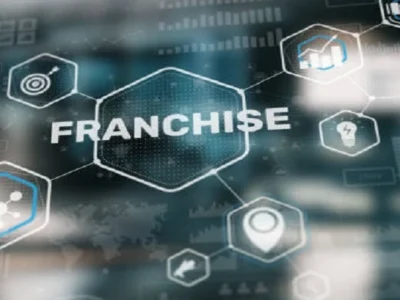Consolidating your debt can make it so much easier to handle your money. Putting all of your credit accounts into one loan or line of credit can make your payments easier and could even save you money on interest. For example, if you’re dealing with private student loan consolidation, you can merge those loans into one, making repayment easier. Putting together debts in different ways, each with their own pros and cons, is possible, though. We’ll talk about the various types of debt reduction so that you can pick the best one.
What is debt consolidation?
Before you can fully understand the different kinds of debt consolidation, you need to know what it means. Most of the time, debt consolidation means putting together several loans into one. It’s possible to get a new loan or use a credit card to pay off old ones.
The primary goals of debt consolidation are to:
- Simplify Payments: You’ll only have to make one payment to one vendor instead of several to different ones.
- Lower Interest Rates: Ideally, you’ll be able to get an interest rate that is lower than the one you were paying on your other loans.
- Pay Off Debt Faster: You can focus on paying off your debt faster if you only have to make one payment a month and the interest rate may be lower.
Now that you know what debt consolidation is in general, let’s look at the different kinds you can choose from.
1. Personal Loan Consolidation
A personal loan is one of the most prevalent methods of debt consolidation. With this choice, you can borrow money from a bank, credit union, or online lender to pay off your bills.
Pros:
- Fixed Interest Rates: A lot of personal loans have fixed interest rates, which can help you plan your monthly payments.
- Flexible Amounts: Depending on your credit score, you can take any amount you need.
- Pay Off Debts With High Interest Rates: A personal loan can help you quickly pay off other debts with high interest rates, like credit cards.
Cons:
- Fees: The initial fees for some personal loans can eat away at your savings.
- Impact on Credit Score: Getting a new loan may have a short-term effect on your credit score.
2. Balance Transfer Credit Cards
Another popular choice is to use a credit card to transfer the amount. For a short time, this type of card has an introductory APR of 0%, which means you can transfer credit card debt onto it without paying interest during the promotion period.
Pros:
- No Interest Payments: You won’t have to pay interest during the introductory deal, which lets you pay off the principal more quickly.
- Simplified Payments: During the promotion time, you’ll only have to deal with one payment.
Cons:
- Balance Transfer Fees: A lot of balance transfer cards charge a fee to move money between accounts. This fee can add to the total cost of the move.
- Time Limit: The interest rate may go up a lot after the promotional time ends, so it’s important to pay off the balance before that happens.
3. Home Equity Loans or HELOCs
You could use a home equity loan or a home equity line of credit (HELOC) to combine your bills if you own a home. You can borrow money against the value of your home with these choices.
Pros:
- Cheaper Interest Rates: The interest rates on home equity loans are usually cheaper than those on credit cards or unsecured loans.
- Deductibility: You may be able to write off some of the interest you pay on a home equity loan when you file your taxes.
Cons:
- Your Home is at Risk: If you borrow money against your home, it is at risk. You might lose your home if you can’t make the bills.
- Closing costs: There may be closing costs for home equity loans and home equity lines of credit, which can add to the total cost.
4. Debt Management Plans (DMPs)
Credit counseling companies offer structured payment plans called “debt management plans.” In a DMP, a planner talks to your creditors on your behalf to lower your interest rates and make a payment plan that you can stick to.
Pros:
- Interest Rates That Are Lower: Credit experts can often get interest rates that are lower, which makes it easier to pay off debt.
- As long as you make one payment a month to the credit counseling service, that payment will be used to pay off all of your debts.
Cons:
- Fees: Some agencies charge for their services, so it’s important to do your study and pick a trustworthy group.
- Possible Effects on Credit: Starting a DMP could lower your credit score at first because you may have to close some accounts.
5. Private Student Loan Consolidation
If you have student loans, consolidating your private student loans may be a good way to make your payments easier and possibly even lower your interest rate.
Pros:
- With this choice, you can combine several loans into one, and you will only have to make one monthly payment.
- Possible Lower Rates: You might be able to get a lower interest rate if your credit score is good and your finances are in order.
Cons:
- Loss of Benefits: If you combine your government student loans with those from a private lender, you might lose some benefits, like plans that let you pay back your loans based on your income or options to get your loans forgiven.
- Fees: Some private lenders charge fees to roll over loans.
Choosing the Right Option for You
How do you pick the best type of debt reduction for your needs when there are so many to choose from? To help you, here are some steps:
1. Assess Your Financial Situation
Take a close look at your current financial position before you make a choice. What kinds of loans do you have, and how much do they cost? Knowing this will help you figure out which way of consolidating will save you the most money.
2. Research Lenders and Programs
Not every lender and scheme is the same. To find a loan or program you can trust, look into your choices, compare interest rates, fees, and terms, and read reviews.
3. Consider Your Long-Term Goals
Plan ahead for your long-term money goals. Do you want to get rid of your debt quickly, or do you want to lower your regular payments? Your goals will determine which consolidation option is best for you.
Conclusion
One effective strategy to help you take back control of your finances is debt consolidation. You can make an informed choice about a personal loan, bill transfer credit card, home equity option, debt management plan, or private student loan consolidation if you know about the different types.
Don’t forget that the point of debt consolidation is not just to make bills easier, but also to make it easier to get out of debt and become financially free. Debt can help you get out of debt and into better financial shape in the long run if you carefully consider your choices.
Pedrovazpaulo Executive Coaching: Unlocking Potential with Its Power










Comments